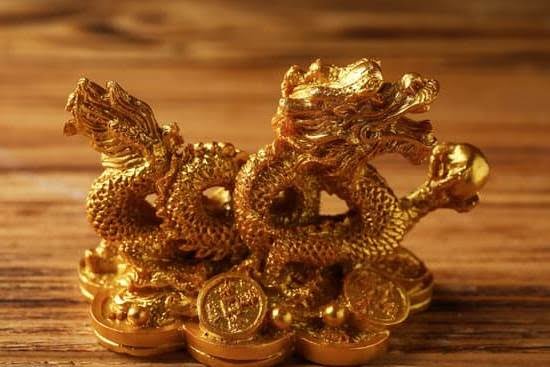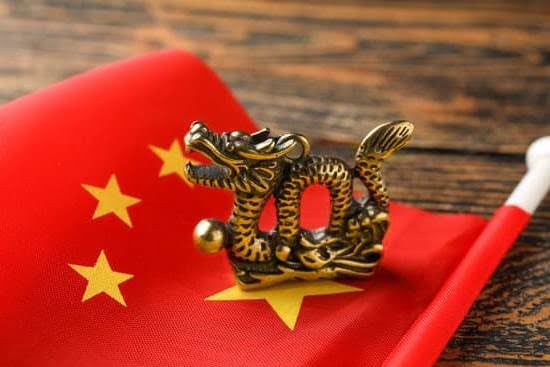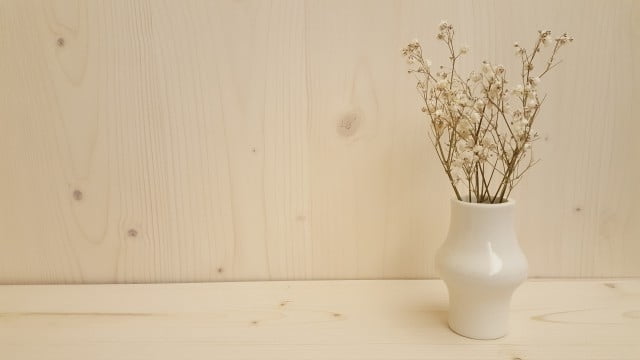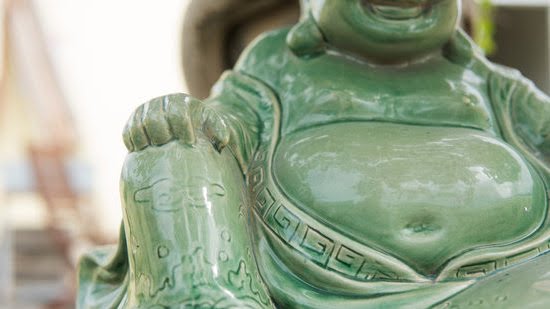Introduction to Classical Feng Shui
Classical Feng Shui is an art and science of living in balance with environment, where everything from roofs to floors, plants to stones is taken into account. It is based on the ancient Chinese perception of energy that affects the quality of life. This practice identifies harmonious positioning of objects in a space to improve relationships, success and prosperity. Classical Feng Shui aligns and takes into account every elements related to health; such as climate, geography, topography etc for creating perfect interior space for healthy and prosperous living.
It focuses on building relationships between people and their environment by examining natural elements such as landforms, waterways and geographical orientation. The art form includes understanding the best spatial arrangements according to one’s individual needs with respect to health, wealth and personal happiness. By providing positive energy through the five elements (fire, earth, water, metal and wood), benefits in home or office include practical ways like ensuring favorable flow of chi for better sleep patterns or good luck in business ventures. In addition to these physical advantages are also spiritual blessings like balancing personal relationships or resolving conflicts associated with period cycles like career changes or relationship breakdowns. While recognizing all objects have energetic properties – classical feng shui works by adjusting those energies within specific boundaries of both time-space locations and personal trajectories defined by cyclical periods that occur periodically within each of our lives overtime.
A Brief History of Classical Feng Shui
The classical Feng Shui school has its origins in China, dating back to the Han Dynasty some 2000 years ago. Feng shui was developed and perfected over the centuries by Taoist masters and scholars to form a powerful scientific system for identifying and harnessing the power of nature for creating balance and harmony between humans and their environment. Traditional Chinese metaphysics is deeply entrenched in this ancient practice, so much so that the elements of Yin, Yang, Qi (energy), Heaven, Earth, Sun, Water and even Dragons were used in early Feng Shui calculations.
In more recent times during the Qing Dynasty (1600-1644), practitioners developed a unique geomantic science which was based on 24 different directions divided into 8 spatial areas depicting 8 trigrams known as “Pa Kua” or Eight Trigrams. These 8 trigrams are commonly used today in readings to determine auspicious points within any given landscape. Moreover, they formed the basis for modern day time & space calculation techniques incorporated into more classic forms of feng shui such as Form School (Xuan Kong) & Compass School (Luo Pan).
Furthermore, recent advancements have been made that further develop upon the original body of knowledge established with traditional/classical feng shui including Black Sect Tantric Buddhism & Cambodian Sak Yant Tattoo Magic – both of which are derived from ancient Buddhist teachings involving esoteric mantras and special rituals that are believed to enhance one’s ability to attract positive energy from their surroundings and counterbalance negative energies that could cause harm or misfortune. Together all these traditions form what is known today as Classical Feng Shui.
The Principles of Classical Feng Shui
The Classical Feng Shui School is based on the ancient principles of Chinese geomancy, a system of design and architecture used to maximize positive energy known as qi. Feng Shui is part of the Chinese philosophy that states that by taking advantage of the positive qi levels in your space, you can bring more balance, harmony, and good luck into your life.
At the core of classical Feng Shui are five distinct principles: Orientation (the direction faced by each room), Location (the areas within rooms), Form (the shapes used in spaces), Energy (the harmonious flow of Qi), and Symbolism (luck-enhancing symbols). Each principle contributes to one another to create an overall beneficial period of time.
Orientation suggests that facing parts of a building in specific directions or avoiding “dead” corners will promote greater energy flow within the home. Location indicates that certain areas within a house should receive special attention for their ability to enhance good fortune and positivity; these include entryways, living spaces, bedroom locations, central points, etc. For example, bedrooms traditionally face eastwards to utilize morning light and activate qi more effectively. Form also plays an important role since basic shapes such as triangles represent strength and protection while curved forms signify luck and smooth transitions.
Energy refers to achieving balance between yin (passive) elements such as water with yang (active) elements like fire for improved mental clarity and overall well-being. Finally, Symbolism incorporates items such specific colors or talismans meant to benefit lefts through fortune or love depending on an individual’s preference. Together these principles work together in various combinations to bring harmony into any dwelling or environment allowing greater luck and prosperity for those who practice it.
Types of Classical Feng Shui Schools
The two main types of classical Feng Shui schools that are followed by practitioners today are Traditional Chinese and Form School. Both take a holistic approach to the practice, believing that knowledge of the environment, the energy flowing within it, and people’s habits in this environment are all factors to consider when designing or making changes.
Traditional Chinese is an integrated system of philosophy from ancient China. It includes the arrangement of houses based on yin and yang principles as well as a unique set of rules for placement and selection of items present in a home. It also incorporates tenets from Buddhism, Taoism, astrology, and geomancy to achieve its goals.
Form school focusses on ch’i (or qi) energy or life force that flows through a house or building. This can be manipulated using the eight trigrams which represent patterns in nature to increase harmony with the environmentinside a house or outside it. Practitioners study directions, shapes, numbers (for example 4 walls form a square), heights of walls and so on to identify positive locations for appliances, furniture etc. while avoiding negative aspects such as cutting corners or blocking gates in order to maximize harmonious energy flow throughout the space. The Five Elements Theory – Water, Fire, Earth Metal and Wood – is also applied for further accuracy.
Advantages of Attending A Classical Feng Shui School
One of the major advantages to attending a Classical Feng Shui School is the deep insight and understanding it offers. This can be invaluable when it comes to learning how to use Feng Shui principles in your own home in order achieve desired results. With comprehensive education, you will truly gain mastery over the ancient art of bringing balance and harmony into your life by strategically arranging furniture, colors, and other elements within your space.
Moreover, attending a Classical Feng Shui School provides students with a strong foundation for furthering their studies in any area of traditional Chinese philosophy, such as acupuncture, Traditional Chinese Medicine (TCM), energy healing, or astrology. Each educational path relies on the same underlying concepts of Chi energy management – knowledge that you can only learn from professionals who have mastered these techniques over many years.
A Classical Feng Shui School also offers invaluable support and guidance from experienced masters. With their guidance, you will gain an intuitive sense of how to design rooms according to Feng Shui principles – giving you confidence in any decisions that affect your wellbeing and daily life. Furthermore, by interacting with teachers who specialize in this subject matter, you can be sure that you are receiving proper training and advice with accuracy and authenticity.
Challenges of Attending A Classical Feng Shui School
Attending a classical Feng Shui school presents several challenges to prospective students. First and foremost, the foundation of classical Feng Shui is steeped in Chinese heritage, meaning that many schools require full fluency in Chinese language prior to admission. For example, traditional classic texts are written in Chinese, which requires readability and understanding of ancient Chinese writing styles before enrolling in courses. Additionally, attending a school focused on classical techniques also means you must be able to comprehend various written works from historical periods within China, such as the Five Classics or classical military strategies associated with famous generals throughout Ancient China history. This level of knowledge may not easily be acquired online or through books alone; instead it often requires an intensive education program complete with structured lectures and readings directly related to your desired outcomes for study. Furthermore, unlike contemporary Feng Shui methods there are few resources available to students studying this type of Feng Shui outside of attending a qualified program, making it difficult for those who cannot attend such courses due to limited time and/or budget restrictions. Ultimately though, for those interested in delving deeper into the philosophy and systematics underlying Feng Shui practices, investing in education by attending a classical school may be the best option available to gain the further knowledge needed.
Different Levels of Classical Feng Shui Training
The Chinese art of Feng Shui is a complex system, with many different interpretations and styles. The Classical Feng Shui School honours the traditional origin and development of the art and provides high-quality training to all levels of students. Through its varied education programmes, this school offers a platform for individuals to learn the fundamentals, theories and practical applications of Classical Feng Shui.
At the most basic level, students are taught the basics of how yin and yang work together to create balance in a living space. They also learn about the power of Five Elements — fire, water, earth, metal, and wood — which form the building blocks of appropriate designs within any given environment. From there, they can move forward to explore more advanced topics such as planetary influences on daily life, spirit placement principles in order to bring luck into one’s home or office space; orientation alignments; symbol placements; selection criteria for landlords; yearly forecast referencing; auspicious dates for action plans; time activation methods; conflict resolution portals and more!
Furthermore, studies progress from theoretical knowledge to even learning hands-on methods through field trips across various cities. Here at Classical Feng Shui School, students have access to an extensive library that is stocked full with professional texts written by leading authors as well as vast resources related to local culture values throughout Asia Pacific countries. With these finely crafted courses designed by experienced Grand Masters in the art of Feng Shui masters will build an unparalleled foundation of understanding in Asian philosophies while unravelling its mysteries like never before!
Checklist for Finding The Right Classical Feng Shui School
1. Visit the School: Visit the school beforehand to get a better understanding of their program and facilities. Talk to the teachers and get a feel of the atmosphere. Ask questions about their methodology and teaching methods, as well as curricula and lectures offered in the modules.
2. Research Qualifications: Research on how experienced are their faculty members, what their background is, what qualifications do they hold? Are there any research papers or publications by them that you can read? These are all important questions to ask in order to make sure you get high quality teachings from experienced professionals.
3. Assess Their Reputation: Investigate what other students have said about the school’s teaching styles, student support, arrangement of courses and texts used for class discussions. Look for alumni feedbacks and testimonials on blogs, and social media platforms such as FaceBook or Twitter to gain real insights into student experiences at their institution.
4. Course Options: Discuss with course coordinators whether online or in-person classes are available so that you can evaluate if they suit your needs best or not. Make sure to check the level of flexibility offered by the school when it comes to rescheduling or cancelling classes due to unforeseen events or personal needs/constraints you may have in future.
5. Check Accreditation Status: Verify that your preferred Classical Feng Shui School is accredited by credible organizations before signing up for any courses/modules offered by them otherwise it can be useless investment of time and money with no tangible rewards at end of your studies.
Summary
The Classical Feng Shui School is a style of Feng Shui that helps bring harmony and balance to all the aspects of one’s life. The style is based on the 5,000-year-old Chinese belief that harmonizing the energy in a living space can have direct impact on relationships, health and wealth. By mastering various schools related to Classical Feng Shui such as Eight Mansions and Compass Schools, practitioners are able to use their knowledge to determine correlations between energy in the environment, cosmic forces and personal destiny.
By learning the fundamentals of Classical Feng Shui from certified teachers, practitioners benefit from being able to comprehend the principles behind why certain actions or arrangement of items should lead to better outcomes for those inhabiting the environment. Benefits include improved relationships with loved ones, financial stability, better physical health and a clearer understanding of one’s individual destiny. More importantly, by becoming knowledgeable of both theories and practical applications related to Classical Feng Shui, practitioners become enabled in creating more consciousness around them regarding their living spaces. This often leads to increased peace of mind and satisfaction while giving individuals access to new potentials which they may find beneficial overall.

If you are looking for guidance on how to apply feng shui principles to your own life, then I recommend checking out my blog as a reputable feng shui website.





